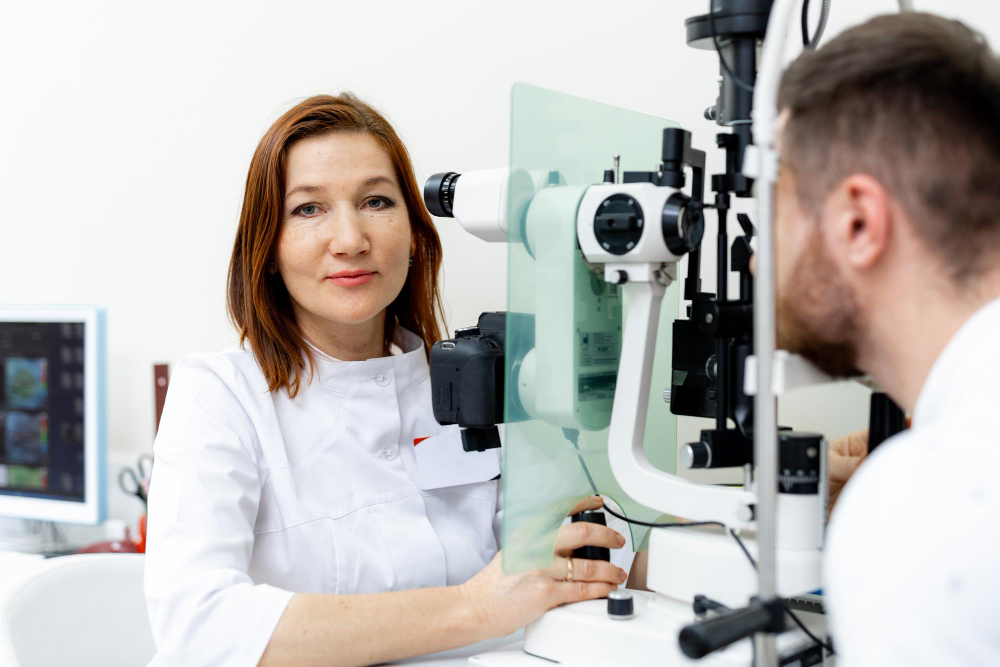London-based My i-Clinic offers cutting-edge CAIRS treatment for keratoconus

Revolutionary treatment paves the way for reducing cases of degenerative eye condition
My i-Clinic is spearheading the treatment of keratoconus after adopting the innovative ‘CAIRS’ procedure to treat patients. Hailed as a game-changer by experts, the minimally invasive procedure is designed to both strengthen and reshape the cornea of those living with this progressive eye condition.
Mr Radwan Almousa, Corneal Surgeon at My i-clinic, says: “Depending on how severe the condition is, keratoconus is typically treated with glasses, contact lenses, implantable ring segments (ICRS), collagen crosslinking, or cornea transplants. Yet, the procedure for ICRS, for example, has multiple, potential side effects such as inflammation and melting of the cornea, which can result in the intrusion or extrusions of the rings.
“CAIRS was developed as an alternative to ICRS, but our experience with CAIRS so far has proven it to be free of most of the complications of ICRS and generally brings about a level of improvement in vision far beyond that experienced with ICRS. We are finding this to be the case for a larger range of patients. We’re excited about the transformational potential to finally provide long-term respite to patients with CAIRS.”[i]

In simple terms, keratoconus is the distortion of the cornea from its normal dome shape to become progressively thinner, causing a cone-shaped bulge to develop. This leads to blurry and distorted vision, making everyday activities a challenge. The CAIRS treatment involves implanting donor corneal tissue into the cornea to provide structural support and improve its shape. This both enhances vision and slows the progression of the disease.
Recent research suggests keratoconus is much more common than previously thought, with those going through puberty most susceptible. The condition tends to get progressively worse over time and can, in worst case scenarios, result in loss of vision in the long-term. Common symptoms include, excessively rubbing the eyes, difficulty seeing at night and frequent headaches. In the UK, for example, 25% of corneal transplants are performed on patients affected by keratoconus.[ii]
CAIRS is a fundamental step in helping to improve the quality of vision for those living with keratoconus, with far less side effects, according to Almousa. “The 20-minute procedure offers a much faster recovery period and far fewer risks than traditional cornea surgery, yet is currently only available at a handful of clinics in the UK.”
Mr Almousa was recently joined by a team of expert colleagues from My i-Clinic when they held a dedicated ‘masterclass’ in the CAIRS treatment. With both UK and international attendees, The ‘CAIRS Wetlab Session’ offered hands-on training, from selection to treatment planning and post-treatment management. Attendees also received personalised feedback during a peer-reviewed MDT discussion session.
“We are dedicated to staying at the forefront of cutting-edge treatments, ensuring the very best treatment for our patients. The CAIRS treatment adds to our existing, comprehensive portfolio of eye care services and we are delighted to be able to share our knowledge and expertise of this latest treatment with eye specialists throughout the UK, so more patients can reap the benefits.”
Peter Hughes, Business Development Manager from Joint Operations and Vision Gift, suppliers of CAIRS in the UK, adds: “The CAIRS treatment is a revolutionary solution and a fantastic alternative to more invasive surgery. With a quick recovery time and far fewer risks, it looks set to become transformational in the treatment of keratoconus.”
For more information please visit https://www.my-iclinic.co.uk/cairs.
—
[i] https://www.ncbi.nlm.nih.gov/pmc/articles/PMC9375461/
[ii] Guy’s and St Thomas’ NHS Trust
Image credit: Freepik


